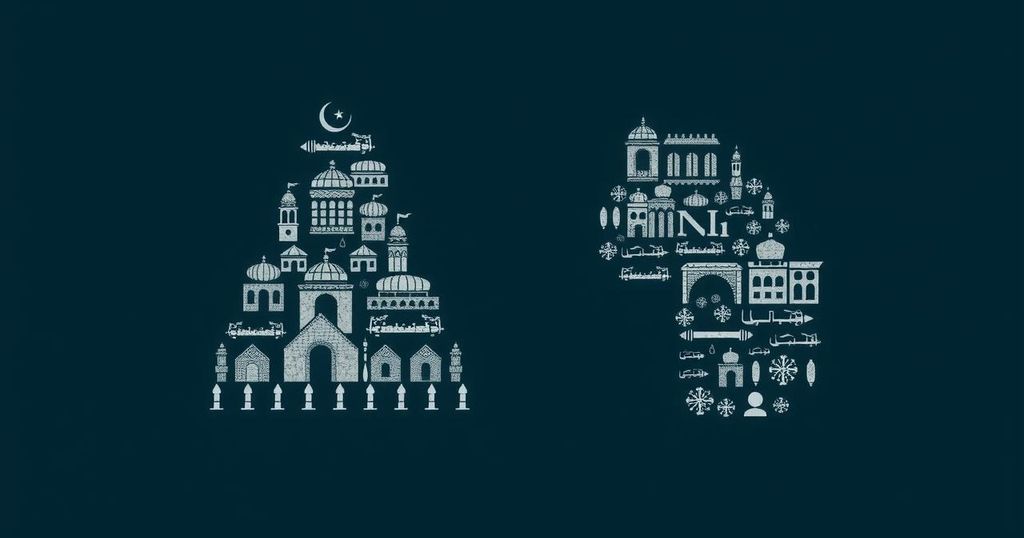In an interview with The Jerusalem Post, Dr. Einat Wilf, a political scientist and former Knesset member, criticized Qatar’s role in the Israeli-Palestinian conflict, arguing that it reinforces Hamas’s power and undermines regional stability. She stressed the need for Israel to treat Qatar as an adversary and to mobilize international support against both Qatar and Hamas, particularly in relation to the hostage crisis.
In an extensive interview with The Jerusalem Post, Dr. Einat Wilf, an esteemed Israeli political scientist and former member of Knesset, articulated her views regarding Qatar’s detrimental influence in the Israeli-Palestinian conflict. She contended that Qatar’s role extends beyond that of a mediator; instead, it directly supports Hamas, thereby threatening regional stability. According to Dr. Wilf, Qatar has supplied Hamas with the necessary resources to sustain its military capabilities while mitigating the repercussions of their actions against Israel. She emphasized that the destruction inflicted upon Hamas’s military infrastructure is temporary, with Qatar swiftly replenishing their resources to maintain their dominance in Gaza. Dr. Wilf argued that Qatar’s backing of Hamas has created a damaging dynamic that allows the group to evade serious consequences for their violent actions. Despite the loss of militants and their assets, Hamas continues to operate with impunity as long as they retain support from Qatar. Furthermore, she highlighted Qatar’s use of its media outlet, Al Jazeera, as a tool to undermine Israel’s political existence, stating that the channel has a disproportionate influence on American media narratives, which often spreads antisemitic sentiments without accountability. When addressing Israel’s miscalculations regarding Qatar, Dr. Wilf asserted that the nation’s engagement with the Gulf state has been misguided. She described Qatar as an enemy, pointing to the direct threat it poses to Israel’s security. In discussions about hostages held by Hamas, Dr. Wilf voiced her concern regarding the normalization of negotiations for their release, arguing that Qatar and Hamas should not be treated as mediators but rather as adversaries. She urged Israel to pressure Qatar to sever its relations with Hamas to demonstrate a firm stance against terrorism. Dr. Wilf passionately criticized the Israeli government’s strategy toward the hostage situation, suggesting that they should mobilize public sentiment and international pressure against Qatar rather than submit to their supposed role as negotiators. She called for a proactive approach to leverage global opinion to disrupt Qatar’s image and support for Hamas. Sharing insights into her work with UNRWA, she drew parallels between its sustained perpetuation of the refugee crisis and Qatar’s role as a mediator, indicating that both entities pose significant threats to Israel’s interests. Ultimately, Dr. Wilf emphasizes the urgent necessity to recognize Qatar’s detrimental influence—arguing that a reevaluation of its status in the international community is essential to mitigating the ongoing conflict and instability perpetuated by Hamas. She encourages public discourse and activism to address these critical issues in hopes of mobilizing governmental action against both Qatar and Hamas.
The Israeli-Palestinian conflict has been further complicated by Qatar’s ambiguous role. While many view Qatar as a mediator, others argue that its relationship with Hamas significantly undermines stability in the region. Critiques of Qatar’s influence have surged, particularly in response to the October 7th invasion by Hamas, which some believe is bolstered by Qatari support. The complexities of these dynamics, particularly regarding hostages and the use of media to shape perceptions, highlight the challenges faced by Israel in navigating international relationships and security threats.
In conclusion, Dr. Einat Wilf’s insights reveal a complex interplay between Qatar, Hamas, and Israel that warrants urgent attention. She asserts that recognizing Qatar as an adversary rather than a mediator could shift the dynamics of the conflict, enabling Israel to adopt a more assertive position to protect its citizens and interests. The necessity for strategic, public-centric initiatives against both Qatari influence and Hamas is critical for achieving lasting stability in the region.
Original Source: m.jpost.com






